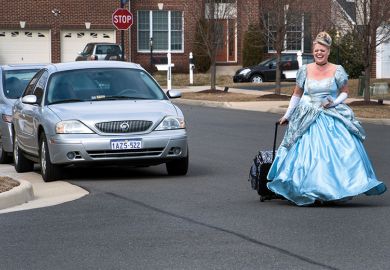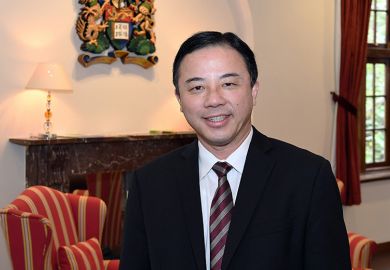Australia’s public vocational education and training (VET) colleges should convert into “professional universities” to combat workforce saturation by overqualified theorists, according to a new thinktank.
The Mackenzie Institute says Australia’s economy has become “hollowed out” by a misguided insistence that universities must be research intensive, and policies that advantage higher education over vocational alternatives.
In a paper coinciding with its launch, the institute condemns the 2008 Bradley review – which spawned Australia’s recently abandoned demand-driven system of higher education funding – for producing a glut of graduates and exacerbating the funding decline in vocational training, particularly among public technical and further education colleges.
The paper blames the Bradley review for cultivating one of the worst skills mismatch profiles in the world. It cites figures showing that Australia ranks sixth among 33 Organisation for Economic Cooperation and Development nations for “high skills” development, but 27th for technical skills.
The institute says that, irrespective of whether jobs require higher credentials, employers use them to gauge people’s potential. “They act as a sorting system that signifies staying power and resilience,” says the paper by the institute’s leader, Bruce Mackenzie, a long-serving former chief of Victoria’s Holmesglen Institute.
“Australia has never had more graduates than now, yet we have a sluggish economy, stagnant wage movement and low productivity. Many of the occupations that provide low return to graduates would once have been taught in VET with better outcomes, and at a much lower cost.”
Mr Mackenzie said Australia’s “disappointingly uniform” universities did not cater to vocational students – many of them mature-aged people who wanted to study part-time – with only about one in 10 university students coming from colleges, and half of these dropping out.
He advocated the establishment of six new applied or “professional” universities, ideally formed from large technical and further education institutions. They would offer both vocational and undergraduate qualifications in the fields they taught, focusing on areas of industry need.
The new institutions would provide “short cycle” degrees typically over two years, embellished with considerable practical work, and would receive government funding only for qualifications up to bachelor’s level. They could offer master’s courses and conduct research, but without funding.
Citing California sociologist Martin Trow, Mr Mackenzie said a widespread desire for university qualifications meant that institutions without the “university” title inevitably struggled to attract students. He said demand for higher education was driven not by national economic needs or industry demand, but “the rise of the middle class”.
“They want to make sure that their children have access to a university, whatever that happens to be,” he said.
Mr Mackenzie’s proposals go further than those of his former charge Holmesglen, which has proposed relaxation of Australian rules to allow degree-teaching institutions that conduct applied research to call themselves “university colleges”.
He claimed that the teaching-research nexus was “hocus-pocus”. “There has never been evidence that students from teaching-only universities have inferior degrees to those from research institutions,” his paper says.
“While a lot of universities are inept in their research endeavours, because they carry the title university they are compelled – at great expense to the taxpayer – to continue to conduct research.”
Mr Mackenzie said Australian tertiary education resembled that of Middle Eastern countries. “Everybody’s doing a degree, and you’ve got a weak, insipid VET system,” he said.
“We went into this idea that everybody has to have a degree, and we neglected everything else.”
POSTSCRIPT:
Print headline: Paper calls for ‘professional universities’ to close skills gaps
Register to continue
Why register?
- Registration is free and only takes a moment
- Once registered, you can read 3 articles a month
- Sign up for our newsletter
Subscribe
Or subscribe for unlimited access to:
- Unlimited access to news, views, insights & reviews
- Digital editions
- Digital access to THE’s university and college rankings analysis
Already registered or a current subscriber? Login








